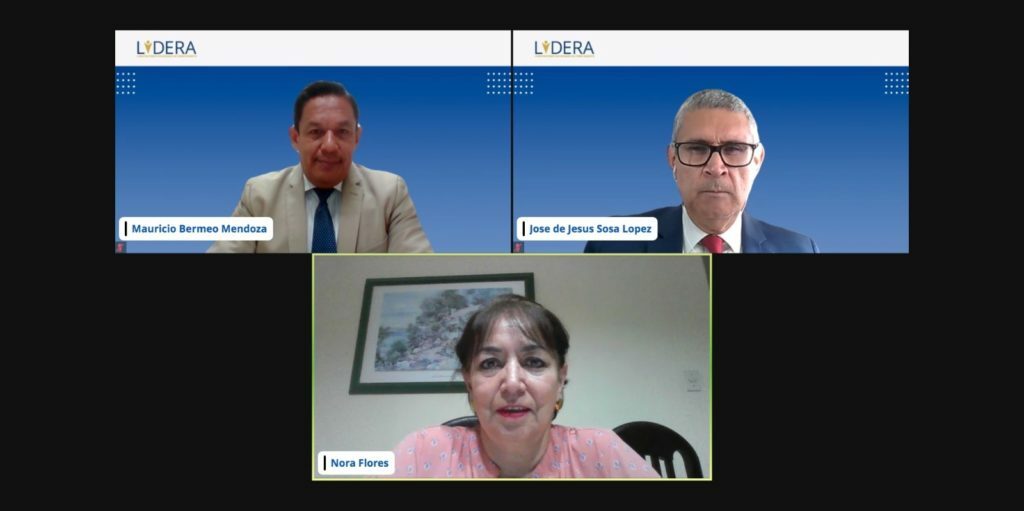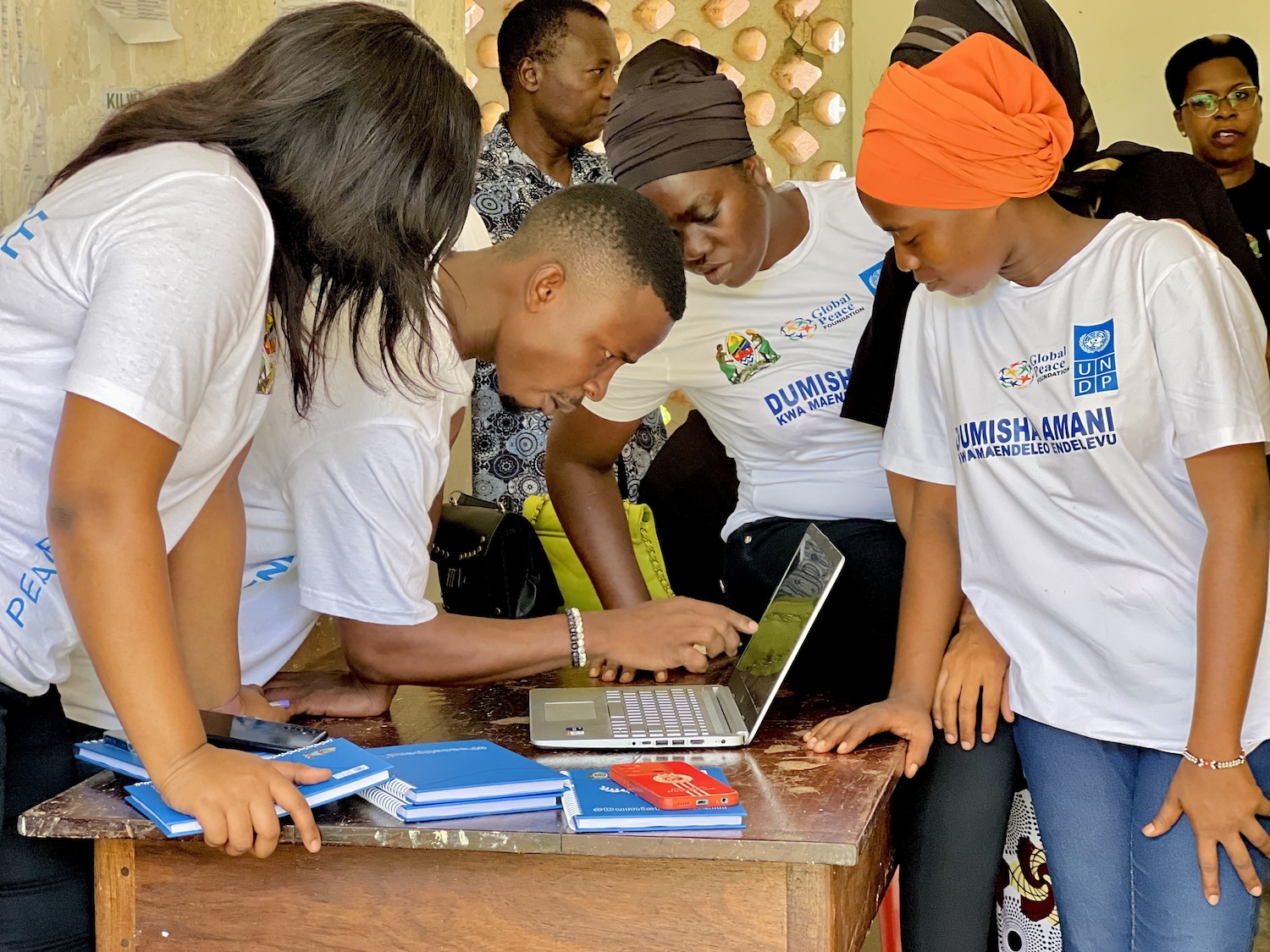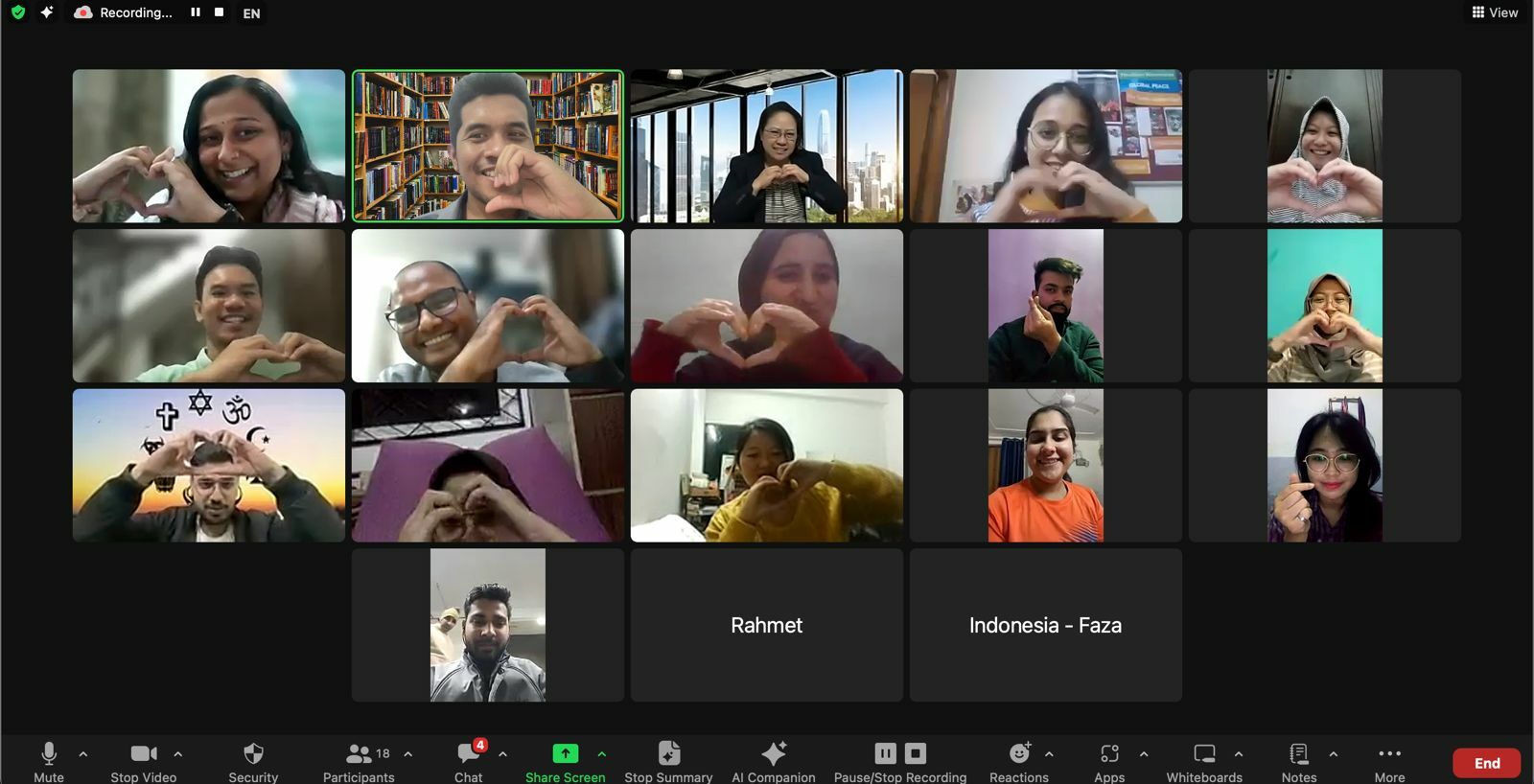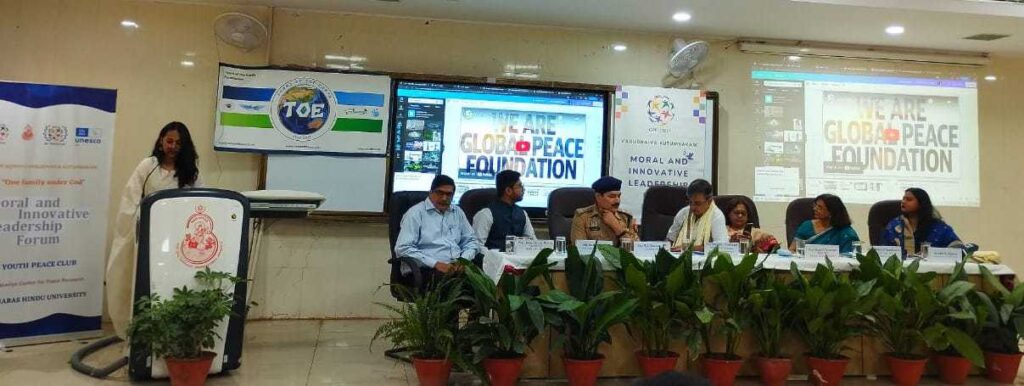
GPF India hosts a Moral and Innovative Leadership forum in Banaras.
The Moral and Innovative Leadership Forum in Banaras provided a platform for insightful discussions on Peace and Governance. The forum took place at Banaras Hindu University (BHU) and was organized by Global Peace Foundation (GPF) India, the Malaviya Centre for Peace Research, Youth Peace Club BHU, Tears of the Earth Foundation and UNESCO Chair for Peace and Intercultural Understanding at Banaras Hindu University.
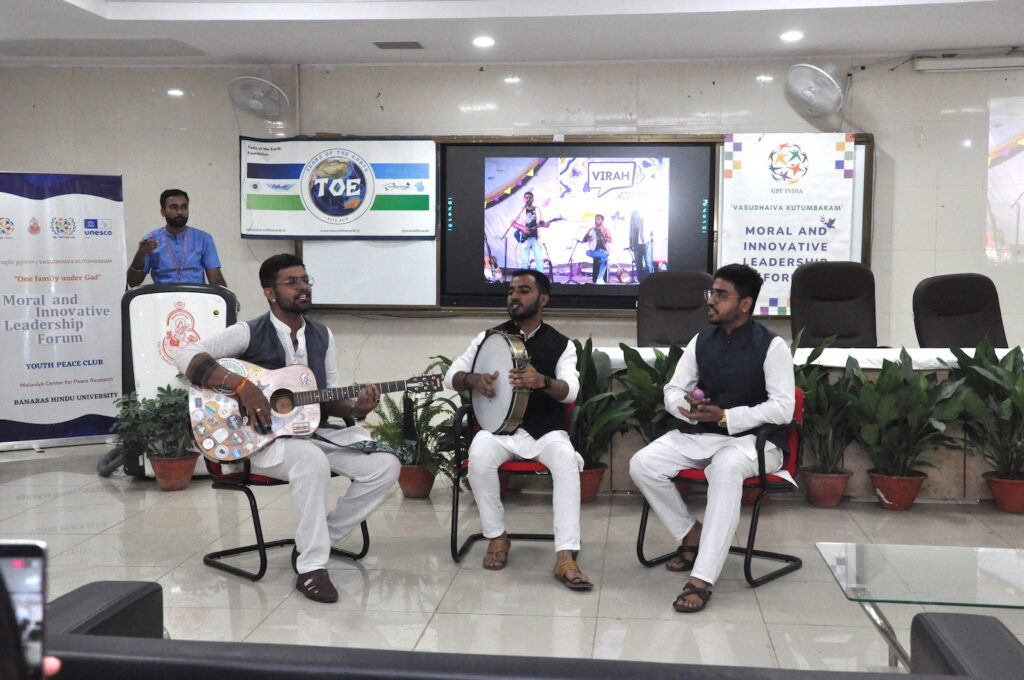
Musicians perform at the Moral and Innovative Leadership forum.
The forum commenced with a powerful shloka, ‘उदारचरितानां तु वसुधैव कुटुम्बकम्’ (Udāracaritānāṁ tu vasudhaiva kuṭumbakam), emphasizing unity and interconnectedness. It was followed by a captivating Bharatnatyam dance performance, symbolizing the harmonious initiation of the proceedings. Distinguished guests included Professor Anjoo Sharan Upadhyay and UNESCO Chair Dr. Priyankar Upadhyaya, who graced the event with thought-provoking speeches on peace, governance, and the balance between inner and outer harmony.
The panel discussion was a crucial part of the forum, moderated by Mr. Rumit Walia. Expert panelists Dr. Manoj Kumar Mishra and Dr. Aditi Narayani Paswan shared their perspectives on various dimensions of peace and governance. Dr. Mishra highlighted the value of action-based research for peace and conflict, praising the commendable fieldwork conducted by students of the Malaviya Centre for Peace Research. Dr. Aditi advocated for enhanced global collaboration, particularly in bridging the gap between the global south and the global north, while also discussing the opportunities arising from India’s G20 presidency.
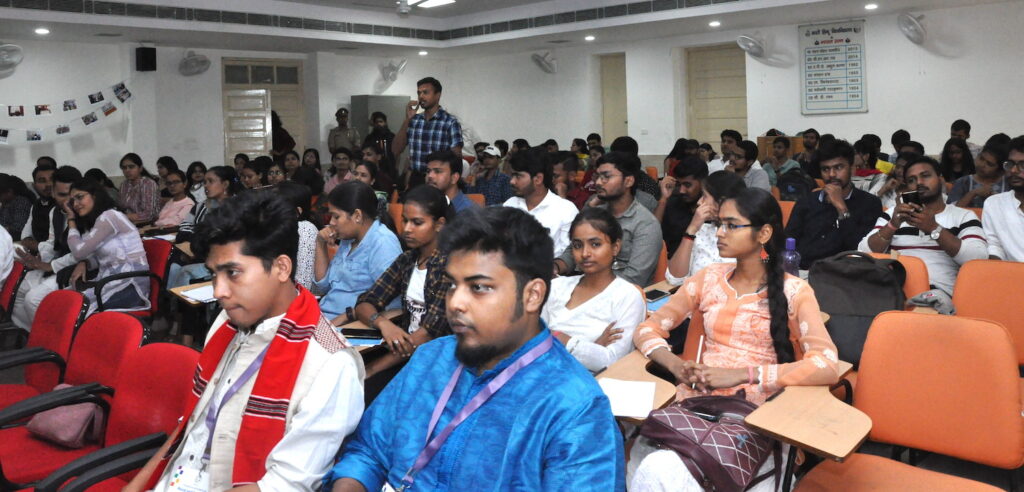
GPF India hosts a Moral and Innovative Leadership forum in Banaras.
The forum featured a presentation on the Banaras Model for peacebuilding by IPS officer Ram Sevak Gautam, Superintendent of Police, Kashi Zone. Officer Ram Sevak showcased the Banaras Model as being a universally applicable approach to various facets of society, exemplifying conflict management strategies in administration, peacebuilding, economy, healthcare, and development. He underscored the importance of dialogue with religious leaders, community involvement, intelligence gathering, and effective social media management in fostering peace and harmony. In this spirit, GPF India launched India’s first Peace Hub at the forum, and a request was made to collaborate with the Varanasi administration for the project.
Professor Pradip Parida discussed human security and governance, addressing conflicts and challenges posed by democratic human rights violations and the marginalization of communities. Professor Parida emphasized the need for inclusive government to ensure peace and justice for all individuals, regardless of their background or social standing.
The forum provided intellectual discussions and engaged participants through captivating activities. Attendees even enjoyed a performance by the Virah band. The forum was also the platform to introduce the first edition of Peace Chronicles, the yearly magazine of the Youth Peace Club BHU. The magazine provided a platform for young voices to express their perspectives and inspired participants to reflect on critical issues of peacebuilding and governance for a better future.
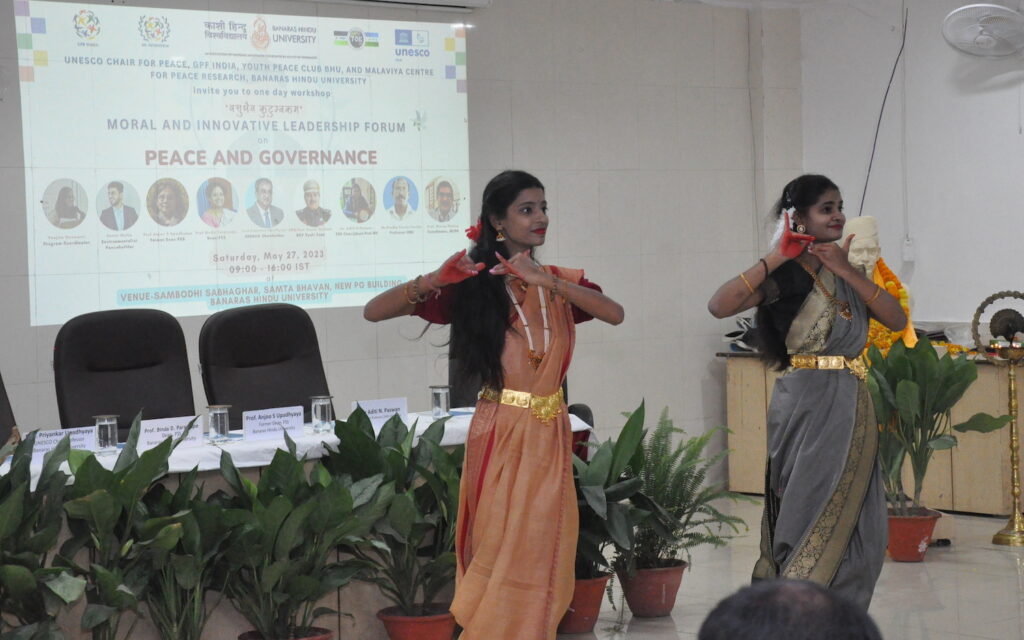
Traditional dancers at the GPF India Moral and Innovative Leadership forum.
The session also included the introduction of the #PostforPeace campaign by GPF India. The New Delhi Declaration resulting from the Global Peace Leadership Conference Indo-Pacific was presented to the delegates and scholars, who contributed their signatures in support of achieving the goals expressed in the declaration. The assembly concluded with a creative “Paint Peace” activity explained by Ms. Poojita Goswami and engaging group discussions to promote peaceful dialogue.
The ‘Vasudhaiva Kutumbakam’ Moral and Innovative Leadership Forum is a PAN India initiative taking place in different states of the country focusing on introducing several peacebuilding tools to youth to make them morally conscious and advancing innovative and creative leadership knowledge and opportunity to work for peacebuilding.
Learn more India | Global Peace Foundation

